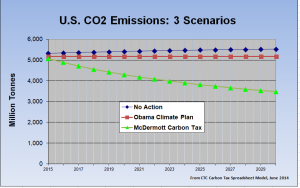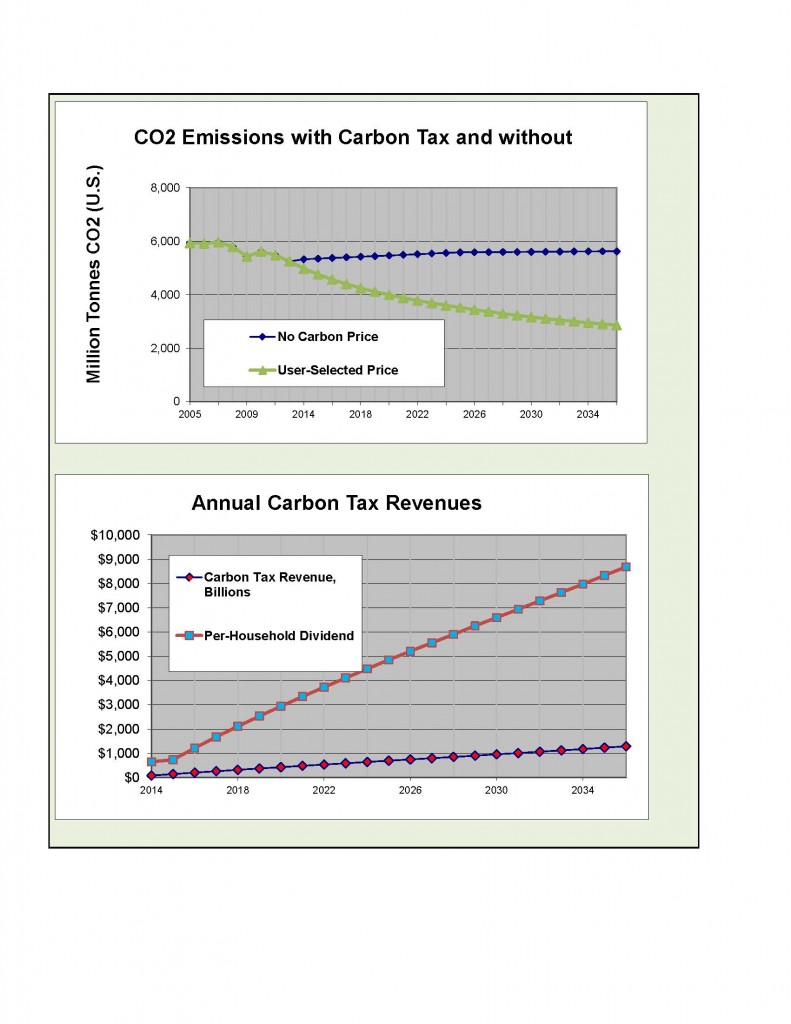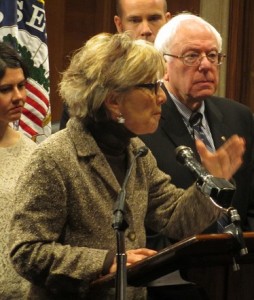Sixty-five percent of Americans now support a modest revenue-neutral carbon tax to reduce pollution and create jobs, according to a survey of one thousand American adults conducted jointly last month by the Yale Project on Climate Communication and the George Mason University Center for Climate Change Communication. This is the first poll we have seen showing that a majority of Americans support a carbon tax.
Majority support for a carbon tax spanned the political spectrum in the Yale-George Mason poll, with 51% of self-identified Republicans, 69% of independents and 77% of Democrats supporting a carbon tax with revenue returned as lower taxes.
The survey found 60% support for a $10/ton CO2 tax if revenue is returned by reducing income taxes. (The pollsters helpfully noted that $10/ton CO2 equates to around 10 cents per gallon of gasoline.) That support slipped to 49% if revenue is returned via annual checks to families, with each family receiving the same amount. The apparent preference for an income tax shift over a “dividend” runs counter to the view that voters are more likely to embrace direct checks than tax shifts. The survey did not poll on monthly checks, nor on the payroll tax shift approach backed by many economists and embodied in Rep. John Larson’s carbon tax bill.
In the poll, 70% of respondents rated global warming as a high priority for the President and Congress, suggesting that reality in the form of this year’s record-breaking 14 weather-related disasters in the U.S. may be affecting public opinion more than the constant drumbeat of industry-funded climate science denial.
Greater funding for research on renewable energy was supported by an overwhelming 78% of respondents, with greenhouse gas regulation supported by 63%, slightly less than the 65% support for a carbon tax. The survey also found that 70% of respondents oppose fossil fuel subsidies, including a whopping 80% opposition among independent voters.
The Carbon Tax Center has long urged polling organizations to query voters on revenue-neutral carbon taxes, in order to test opinions on carbon taxes apart from anti-government sentiments. The strong public support for a revenue-neutral carbon tax evidenced by this groundbreaking survey suggests we are on the right track.


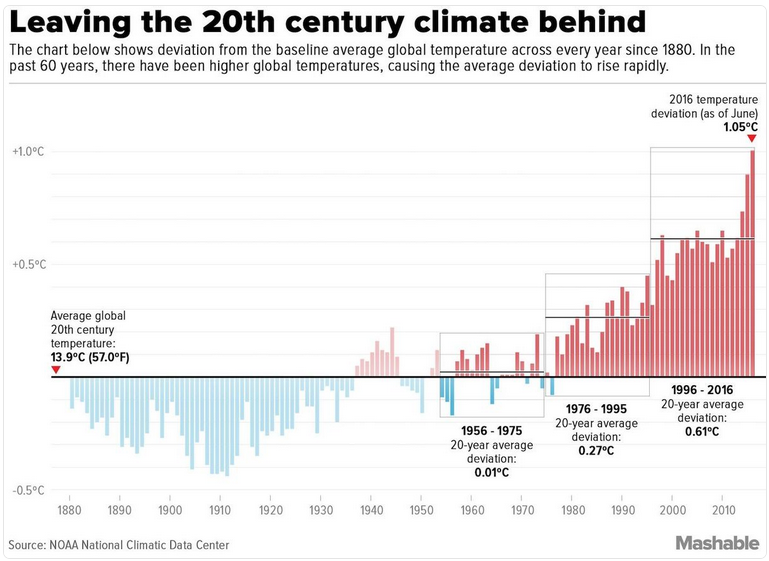 We agree with pioneering climate-scientist
We agree with pioneering climate-scientist 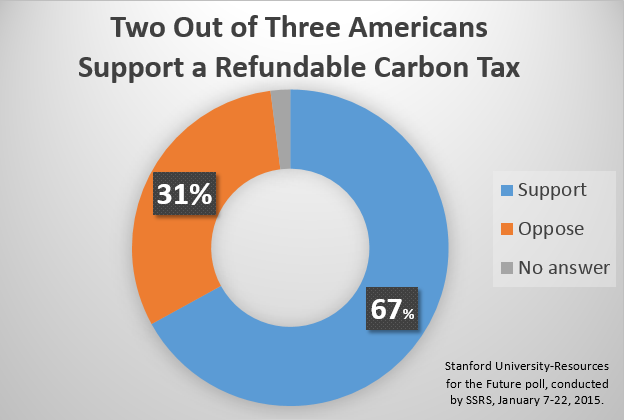
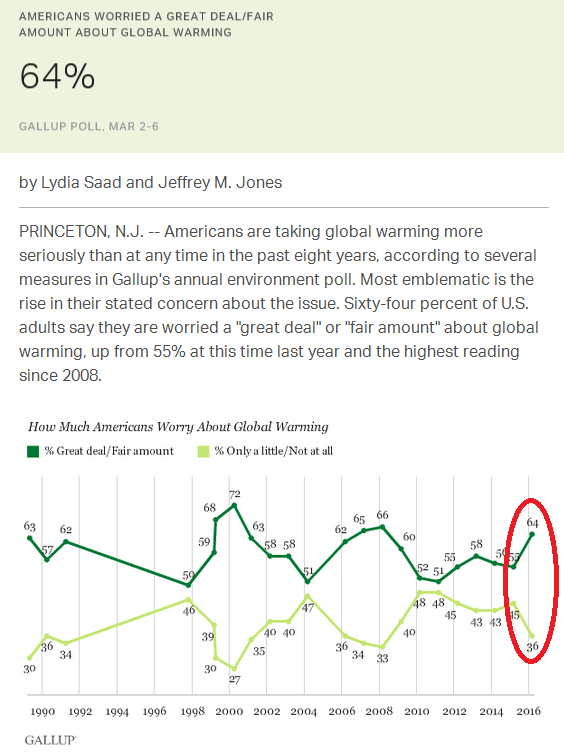 Other results from the 2016 Gallup poll are equally striking. They show a record-high share of Americans stating that climate change poses a threat to them and their way of life; a record number agreeing that climate change is caused primarily by human activity; and climate concern climbing across the political spectrum.
Other results from the 2016 Gallup poll are equally striking. They show a record-high share of Americans stating that climate change poses a threat to them and their way of life; a record number agreeing that climate change is caused primarily by human activity; and climate concern climbing across the political spectrum.